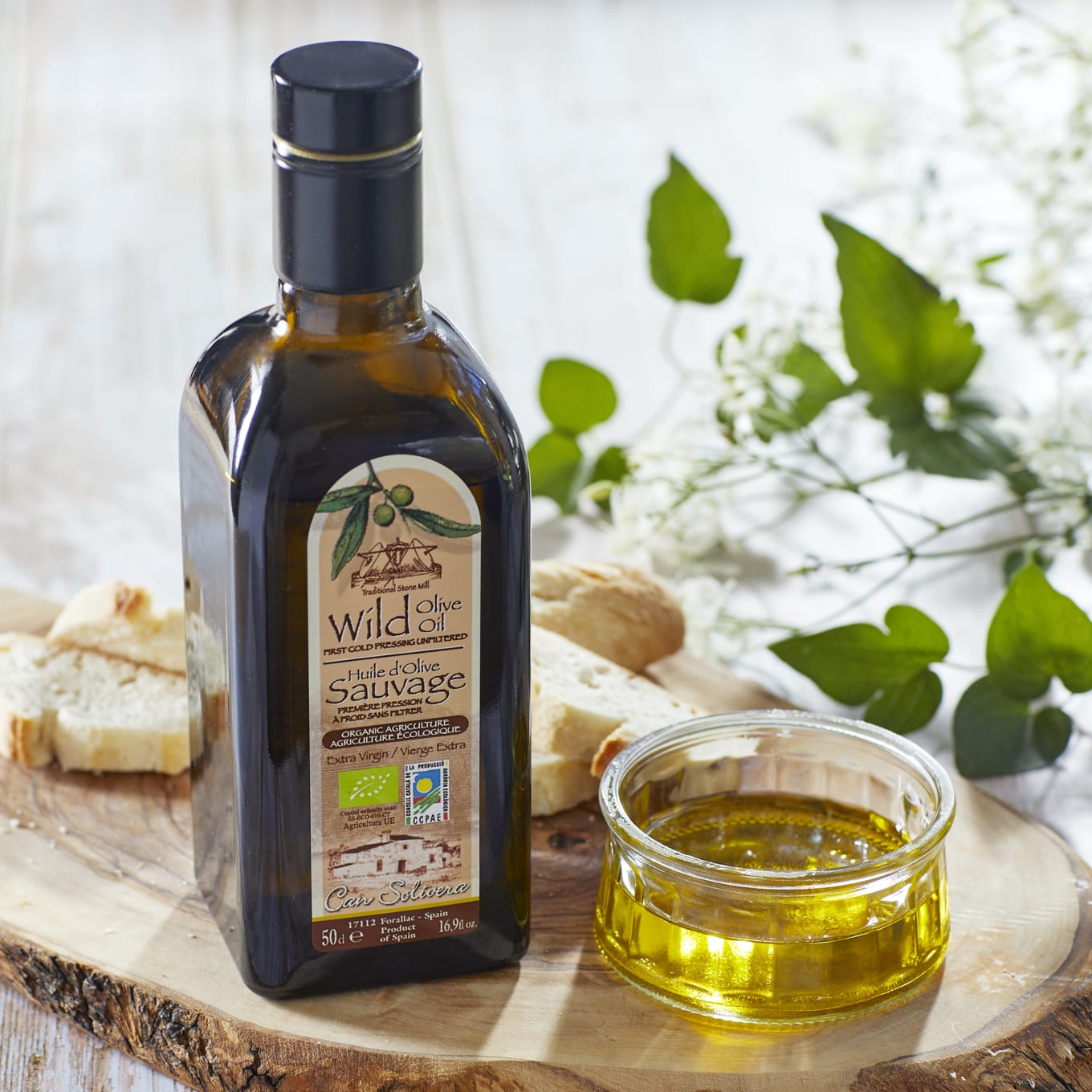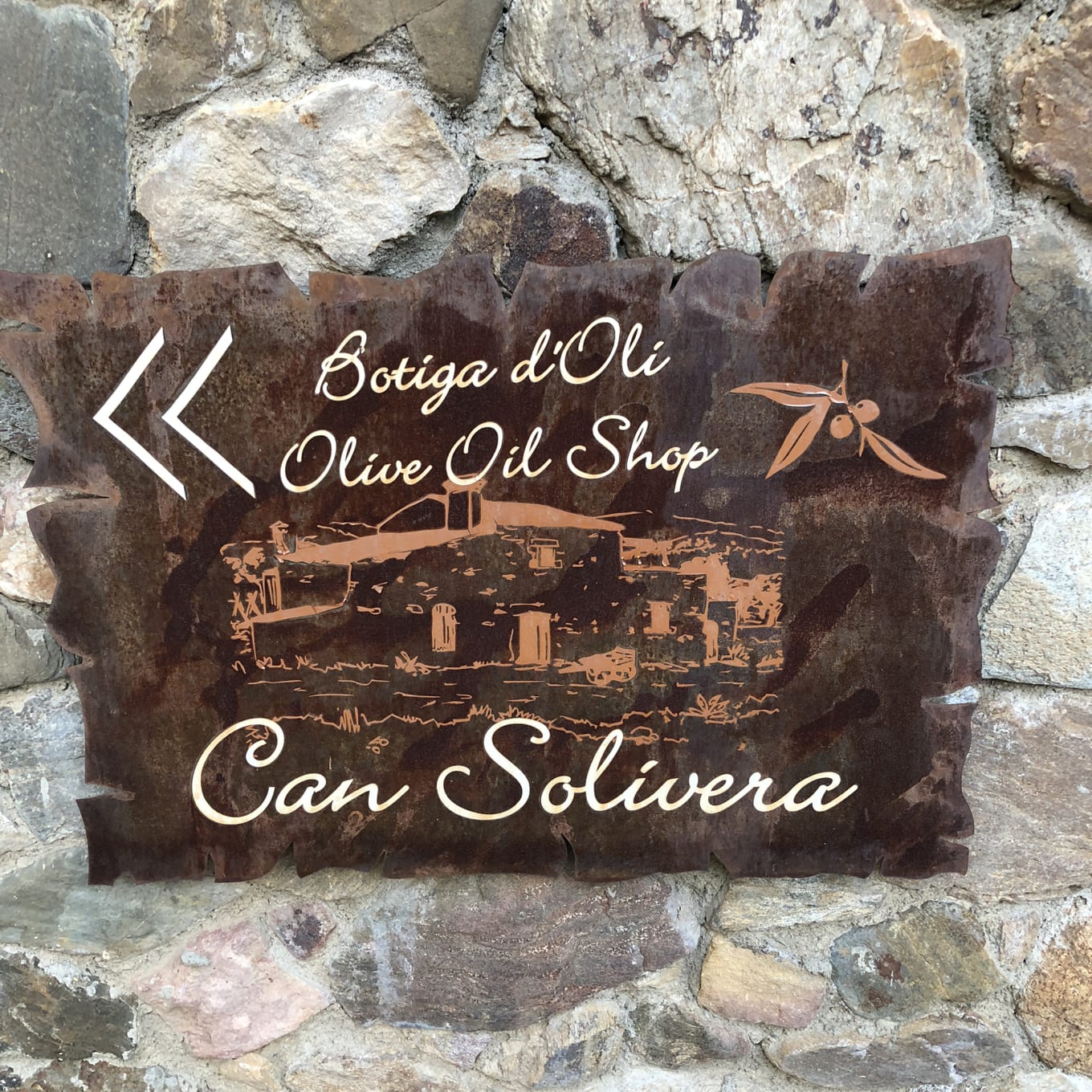This precious organic wild olive oil may well be the best you have ever tasted. It is extracted using the same process as was used in the Middle Ages.
The process is half as efficient as a centrifuge, the modern technique used for virtually all other olive oils. But the oil is the ultimate: fragrant and flavorful and natural.
It is a balanced blend of 80% buttery and tangy Arbequina olives and 20% sweet Empeltre olives, which create a smooth, mellow "olivy" olive oil.
There is an ancient grove of olive trees in the Maestrazgo region, in the foothills of the Pyrenees Mountains, which had not been tended or harvested for generations.
You might say the grove is "organic" by natural default. No chemical fertilizers or insecticides have ever been used on these trees.
In recent years, a few villagers returned to their ancestral grove and began to harvest these wild olives by hand. The olives they picked were principally of the Arbequina variety, whose tiny fruit makes buttery and fragrant oil. Intermingled are trees of the Empeltre variety, which produce sweet olive oil with a slight almond taste and a straw yellow color.
They took them down the road to one of two old mills operated by an artisan named Antonio, who cold-presses olive oil the medieval way in order to preserve the fullest flavor of the extra virgin oil. There are only twenty such mills remaining in Spain.
First he crushes the olives using stone wheels with three conical grinders revolving on a granite circular table.
Next he extracts the oil by sandwiching the crushed olive mulch between layers of small woven grass discs, called capachos.
A mechanical press squeezes the oil from a stack of about thirty of them at a time. (Until recently, horse or oxen power was used.)
Finally, he decants the fresh olive juice naturally, leaving most of the sediment behind.
This is the most pristine extra virgin olive oil you could ever have on your table - it may be a little cloudy, but that is because no mechanical means are used. Dip some crusty bread in it, or adorn a salad bowl of baby greens. It is a memorable experience.





